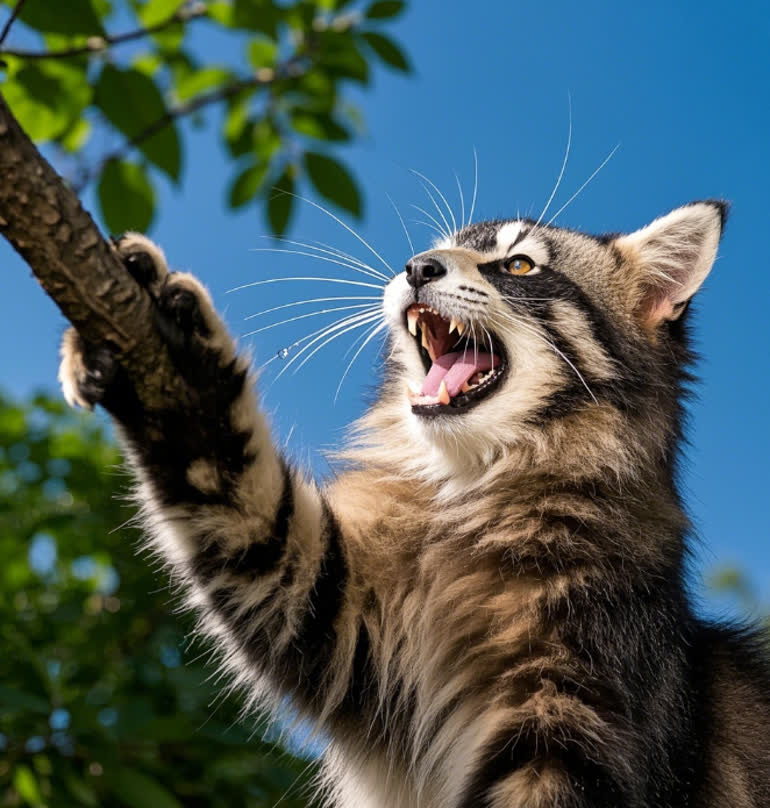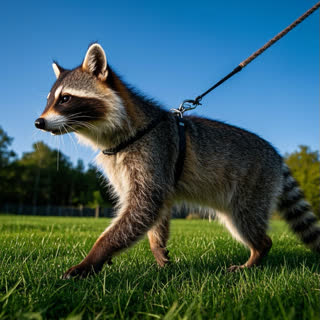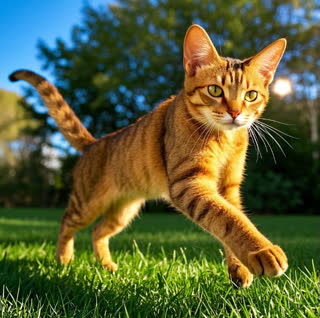Maine Coon cats, celebrated for their regal appearance and gentle demeanor, often perplex their owners with a unique vocal trait: chirping instead of meowing. If you’ve ever wondered,
“Why does my Maine Coon cat chirp instead of meow?” you’re not alone. This behavior, deeply rooted in the breed’s genetics, social nature, and evolutionary history, offers fascinating insights into their communication style. In this comprehensive guide, we’ll explore the science, behavior, and practical implications of your Maine Coon’s chirping, backed by expert research and real-world observations.
Maine Coons are renowned for their diverse vocalizations, which include chirps, trills, chatters, and even soft meows. Unlike typical cat meows—a sound domesticated cats primarily use to communicate with humans—Maine Coons’ chirps are shorter, higher-pitched, and more melodic. These sounds resemble birdcalls or the purr-meow hybrid known as a trill .
Chirps: Short, staccato sounds often used to express excitement, curiosity, or greeting.
Meows: Longer, more drawn-out sounds reserved for specific needs like hunger or attention.
Trills: A rolling, musical sound similar to a cat’s purr-meow blend, often used in playful or affectionate contexts .
Maine Coons’ preference for chirping stems from their social and intelligent nature. These cats evolved to communicate effectively with humans and other animals, and their vocalizations reflect this adaptability .
The question “Why does my Maine Coon cat chirp instead of meow?” can be answered by examining five primary factors:
Maine Coons originated in the harsh climate of New England, where they worked as farm and ship cats. Their chirping may have evolved as a quieter, less aggressive way to communicate with humans and other cats in close quarters. Unlike wild cats, which rely on growls and hisses, domesticated Maine Coons developed softer sounds to maintain harmony in communal environments .
Maine Coons are famously sociable and form strong bonds with their families. Chirping serves as a friendly “hello” or a way to stay connected. For example, your cat might chirp when you enter the room or follow you while chirping to stay engaged .
When Maine Coons spot prey (e.g., birds outside a window), they often chirp or chatter. This behavior, known as “mousing,” mimics the sounds of prey to signal excitement or frustration. It’s an instinctual response rooted in their history as skilled hunters .
Chirping can convey a range of emotions:
Happiness: A high-pitched chirp when you return home or during play.
Curiosity: A series of short chirps while exploring new surroundings.
Contentment: Soft chirps combined with purring when being petted .
Maine Coons are genetically predisposed to vocalize more than other breeds. Their large larynx and unique vocal cords allow for a broader range of sounds, including chirps and trills. This trait is often compared to the Siamese breed’s talkative nature but with a softer, more melodic tone .
Misunderstandings about Maine Coon chirping often arise. Here’s what experts say:
While some cats chirp when anxious, Maine Coons typically chirp out of happiness or excitement. If your cat’s chirping is accompanied by flattened ears or aggression, consult a veterinarian to rule out health issues .
Chirping is generally a healthy behavior. However, sudden changes in vocalization (e.g., excessive chirping or silence) could indicate pain or stress. Always monitor your cat’s body language and consult a vet if concerns arise .
Like humans, each cat has a unique personality. Some Maine Coons are more vocal than others. Factors like age, environment, and socialization influence their chirping frequency .
Understanding your cat’s chirps can strengthen your bond. Here’s how to engage:
Hunger: If your cat chirps near their food bowl, it’s likely a request for a meal.
Attention: Offer pets or cuddles if they chirp while rubbing against your legs .
Reward Quiet Moments: Praise or treat your cat when they’re calm to reduce excessive chirping.
Environmental Enrichment: Provide scratching posts, cat trees, and interactive toys to keep them mentally stimulated .
While chirping is normal, consult a vet if:
The chirping is sudden or accompanied by lethargy, loss of appetite, or other symptoms.
Your cat’s vocalizations become hoarse or strained.
Chirping disrupts their sleep or daily routine .
Maine Coons’ chirping is a charming and natural behavior that reflects their intelligence, sociability, and unique breed history. By understanding the reasons behind their vocalizations, you can deepen your connection with your feline friend and ensure their well-being. So, the next time your Maine Coon chirps instead of meows, embrace it as a special “hello” from one of America’s most beloved breeds.










